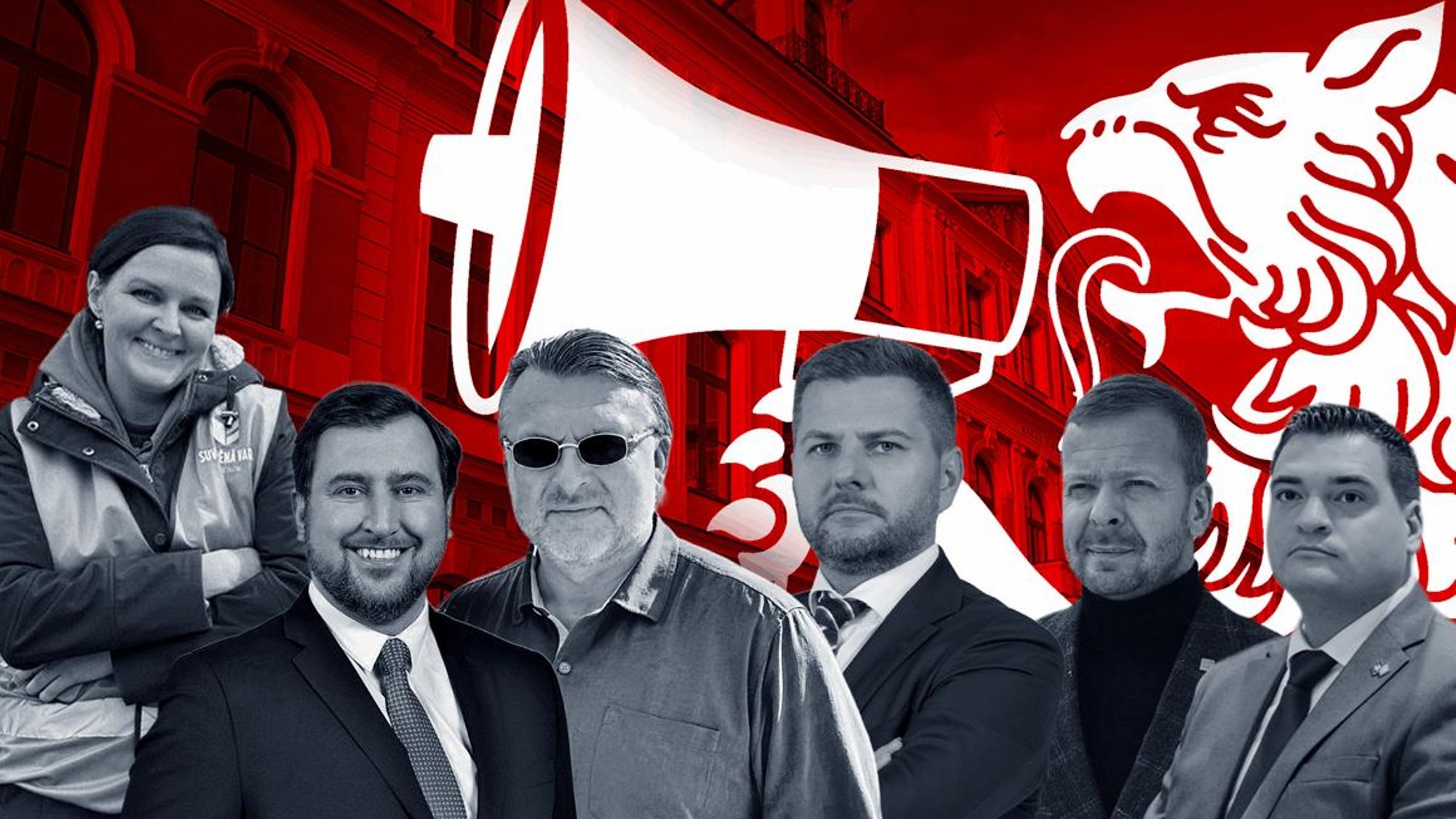“They’ll steal your vote”, “no to immigrants” and “bad vaccines”: what we heard this year in the fight for Riga’s angry voters
“They’ll steal your vote”, “no to immigrants” and “bad vaccines”: what we heard this year in the fight for Riga’s angry voters15/06/2025
Riga’s City Council now includes a few disinformation specialists and several activists known primarily for making loud—and often misleading—claims on social media. What narratives did populist parties use to capture the votes of dissatisfied citizens this year?

This article was written by Évita Purina and published in Latvian on Delfi.
Just two years ago, Re:Baltica identified a new phenomenon: the first Baltic party to enter parliament largely due to TikTok. That was Stabilitātei! and its TikTok star, Glorija Grevcova—an unemployed newcomer with no political background, but millions of views. Although her time in the party and parliament was brief, she opened the door for others. This year, at least two individuals—Rūdolfs Brēmanis and Artūrs Klēbahs from Apvienība Jaunlatvieši—won seats in Riga’s council. Fact-checkers at Re:Check label them social media deceivers or disinformers: they attract followers with lies, exaggerations, conspiracy theories, and Kremlin-friendly messages portraying Latvia as a failed state. Another newcomer, former boxer Mairis Briedis from Stabilitātei!, continuously projects a "Latvia is terrible" narrative—covering everything from winter road salt to tourism and forestry. In Riga, Brēmanis has nearly 90,000 TikTok followers, Briedis 150,000. A key to their success is bilingual outreach in Latvian and Russian, similar to Ainārs Šlesers(Latvija Pirmajā Vietā) and Jūlija Stepaņenko (Suverēnā Vara).
“Everything’s falling apart in the country”
For those not following politics closely, these were local elections—but the campaigning discussed nationwide crises. Šlesers frequently talked about empty downtown shops and terraces he claimed were blocked by the “bad city council” in winter (untrue), while claiming the whole country is collapsing economically. He emphasized a looming demographic crisis and “enormous national debt”—without acknowledging the role of previous fiscal policies in driving the crisis.
Fabricated narratives
Populist parties responded to voter concerns but spread misleading “facts” in doing so. Aleksejs Rosļikovs of Stabilitātei! repeatedly claimed Rīga was overspending on hires—four positions costing €6 million annually—but offered no evidence. Meanwhile, Edvards Ratnieks from the National Alliance argued that Rīga shouldn’t allocate so much to other municipalities and suggested income tax should be tied to where one works—although local governments have no power over such decisions.
“They’ll steal your vote”
After the election, Šlesers invoked Trump-style voter fraud claims—but this narrative was used even before the vote. Andrejs Kameņeckis of Saskaņa warned citizens that if they didn’t vote, “they’ll steal the city for another four years,” while Rosļikovs echoed that your vote would be “redistributed” (Russian: “разпределят”). Influencer Ilja Magnuss told his 130,000 TikTok followers, “Go vote, otherwise your voice will be stolen.”
Russian language in the crossfire
Competing narratives focused heavily on the status of the Russian language and non-citizen rights—issues beyond municipal authority. TikTok videos criticized parties for their past votes on language policies, often inaccurately claimed as occurred. Stepaņenko urged, “If you like Šlesers, vote for us, because we will force him to respect Russian.” Rosļikovs warned that without his election, Russian-speaking residents would face expulsion. Brēmanis claimed nationalists planned to ban Russian language in public spaces—a proposal that never passed parliament.
Anti-vaccine messaging
Vaccine disinformation remained central. Suverēnā Vara/Apvienība Jaunlatvieši leveraged skepticism after COVID restrictions. Two Stepaņenko TikToks, widely viewed, praised the “so-called anti-vaxxers” and criticized forced vaccination, claiming they were right all along. One video got 165,000 views. Brēmanis’ channels continued pushing anti-vax conspiracy theories.
"No" to the “wrong” immigrants
Anti-immigrant sentiment was another major theme. Ratnieks of the National Alliance repeatedly warned of hypothetical mosque construction in Riga. Šlesers used migrant fears to promote his Riga Waterfront development and residency permit schemes. Brēmanis mocked delivery couriers in xenophobic content—content that clearly resonated with his audience.
Bloggers joining the campaign
What’s new in this election is the active involvement of pro-opposition bloggers—particularly Russian-speaking influencers. Vladimirs Vološins, known for spreading disinformation, attended a Stabilitātei! congress, shaking hands with Šlesers, later switching support to Suverēnā Vara. Ilja Magnuss directly echoed Stepaņenko, instructing how the Saeima should have voted. Another agitator, Aivars Smans, explicitly urged votes for Šlesers or Rosļikovs. Post-election, they continued echoing Šlesers by accusing nationalists of betraying traditional values and talking about coalitions with the Progressives.
Both Šlesers and others appeared more frequently on bloggers’ YouTube streams than on traditional media; Šlesers tailored his message by platform—focusing on debts and panic in TikTok and Facebook, but promising tax cuts during YouTube influencer interviews, evoking a Trumpian tone.
In summary, Riga’s election campaign saw a blend of populist media strategies: exaggerated narratives of crisis, voter suppression fears, language-based fear-mongering, vaccine distrust, anti-immigrant messaging, and coordinated use of influencers—all designed to mobilize and manipulate dissatisfied voters.